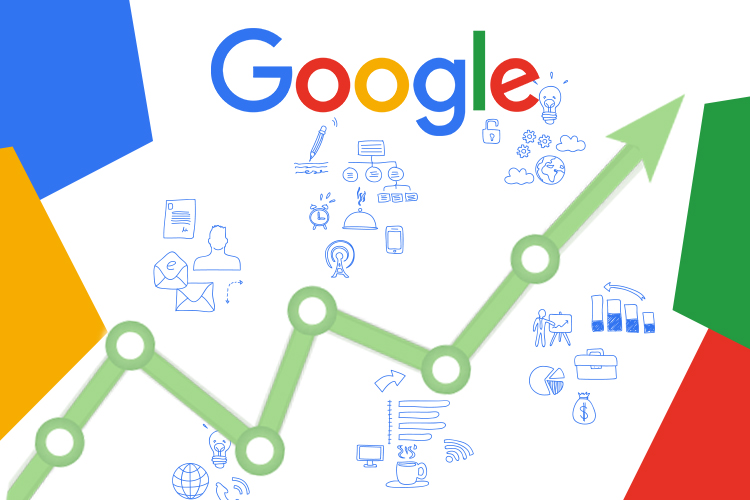4 Concepts of Link Building & Google Rankings You Should Build Upon

If you think “keyword” is the most important factor contributing to higher page rankings on Google, think again. Link building, along with content marketing, is the most vital “external signal for Google’s search rankings” today. The giant search engine relies heavily on quality links as a way to determine authority and relevancy.
Links to websites are “votes” that Google uses to rank web pages on Search Engine Result Pages (SERPs). The higher votes a page has, the better are its chances to have an improved ranking in search results. However, merely having more links to your website will not get you higher rankings; thanks to Google’s evolving algorithms that now focus on authority and relevance of the link to determine the page ranking in search results.
Keeping in mind the growing complexities of Google algorithm, we have outlined four crucial concepts of link building & Google rankings that you can leverage to stay ahead and garner top page rankings.
Key Concepts of Link Building & Google Rankings
Having a successful link building campaign can be challenging. Linking with the wrong websites may not only affect your website ranking in search results but can also get it penalized by Google. 65% of the marketers believe that link building is the most complex SEO tactic today, while 41% affirm that is the biggest challenge in Search Engine Optimization.
As Google continuously changes the way it views page links, it can be tricky to master the art of link building especially when it is mostly about authority and relevance. Check out the simple tactics that you can harness to get organic rankings for your site.
- Anchor Text
Google’s initial PageRank patent incorporates a lot about anchor text. It states:
“Thus, even though the text of the document itself may not match the search terms, if the document is cited by documents whose titles or backlink anchor text match the search terms, the document will be considered a match.”
Links with anchor text relevant to the topic or links from pages with the relevant topic can be a powerful signal for Google to rank your page higher for related search terms. To leverage anchor text for higher page rankings, use the following best practices:
- Use anchor text that clearly describes what the pages are all about. Seek links with such descriptive anchor texts only
- Make sure you avoid anchor text that is generic in nature or is not relevant to the topic
- The anchor text should be short and precise. It should not be more than 5-6 words on an average
However, ensure you do not over-optimize your anchor text or it can signal manipulation to the search engines. Use a variety of anchor texts to get higher rankings, suggests the experts.
- Topic-Relevant Google PageRank
Another link building tactic to boost Google ranking is using “Topic-Sensitive PageRank” to dispense topic relevance from “seed pages” to all linked pages. Using this technique, you can distribute various kinds of ranking signals all through the search index. Trust, popularity and topic relevance are the most important signals that you can assign throughout the linked pages for higher rankings.
To improve your page relevancy for Google ranking, group all “seed pages” based on their topic. Every link that goes out from the seed pages should distribute certain Topic Sensitive PageRank. The next set of outbound links will then pass on the same topic-relevant information, and so on.
To leverage this technique, try obtaining links from pages that have similar topics you want higher rankings for. Similarly, link to pages that are linked to authoritative pages with the same topic.
- Authority Pages
An effective link building strategy is to have links from “expert” pages. An expert page is one that is linked to several pages with a relevant topic. If your page displays links from various expert pages, then Google will consider it as an authority on the topic, giving higher page ranking.
“…a goof hub is a page that points to many good authorities; a good authority is a page that is pointed to by many good hubs.” – Authoritative Sources in a Hyperlinked Environment.
Obtain links from “Resource Pages” of a website. The section typically includes Expert/Hub pages that are linked to from authority sites on a topic. Getting links on such pages can help improve your Google ranking.
- Phrase-Based Indexing
This technique allows Google to determine link relevancy by considering the related phrases in the target and source pages. The more related the phrases are, the higher will be the relevancy score. It is recommended to get links from various pages having related phrases. This is particularly useful for internal linking or on-page SEO.
Conclusion
To leverage the concepts of link building & Google ranking, try to attract and get organic links to your website with topically relevant, high-quality content. The above techniques will not only help you build authority but will also help improve relevancy and page ranking on Google.
Author: Amara Luis
Amara Luis is a skilled and most creative content writer work freelance specializing in writing SEO, social media and other various topic on internet marketing.

